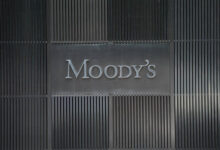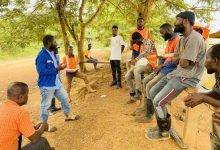
The University of Cape Coast (UCC) School of Business under the College of Humanities and Legal Studies has organised an electronic seminar to discuss the financial impact of COVID-19 on households.
Under the topic, ‘Coronavirus pandemic, household financial anxiety and wellbbeing’, the programme featured Dr Megan McCoy , a Professor of Practice in the area of Financial Therapy, from Kansas State University, Mr Kwabena Gyan, an Economist with the World Bank, Accra and Dr Anokye Mohammed Adam, the Head, Department of Finance in the School of Business, UCC.
The Dean of the UCC School of Business, Prof John Gatsi, in his address explained that it was apt to focus on personal finance which also involved family finance, retirement finance, and household savings.
This, he explained, was because the discussions about the effects of the Coronavirus pandemic were focused on macro level issues such as fiscal policy, monetary police, general job losses and disruption in global supply chain to the neglect of financial issues affecting households.
The Dean said those effects resulted in anxiety, psychological problems and health challenges, saying, “Household anxiety is a function of the uncertainty of maintaining one’s job, income stream and support from external sources such as government social protection schemes.”
Prof Gatsi indicated that financial therapy and literacy were critical at a time when the pandemic had deepened vulnerability and inequality in many economies including Ghana.
“Less attention to personal financial education has led to little or no savings and investments by households to fall on during the pandemic,” he said.
He lamented that formal savings by households in Ghana as presented by the Statistical Service since 2014 was 35% and the situation has not changed significantly.
Dr McCoy emphasised the importance of financial therapy for households in times of difficulty to reduce stress and other psychological challenges.
She stressed that financial therapy during the Coronavirus pandemic should not be overlooked, adding that personal finance principles should be part of training for children and adults alike.
Dr McCoy pledged her support to help the Department of Finance develop solution oriented financial therapy programmess to benefit students and the catchment areas of the University of Cape Coast.
Dr Adam said financial planning and prudent spending in this period were very crucial “because one cannot tell when the pandemic will be over”.
“Households should pursue savings as a religious duty to protect their future needs just as they pay tithes and offering in church,” he said.
He advised government to use its support schemes to further generate data from households and micro and small businesses arguing that technology alone is not enough to formalise the informal sector.
Mr Gyan explained that the World Bankhad provided the government of Ghana with $100 million to fight the Coronavirus and support households and small businesses.
He pledged the bank’s commitment to support government to fight the COVID-19 pandemic.
BY TIMES REPORTER



